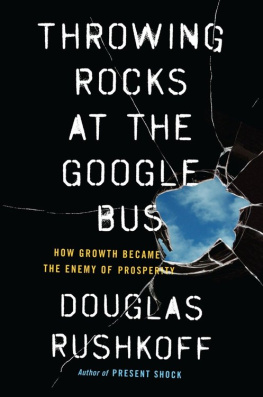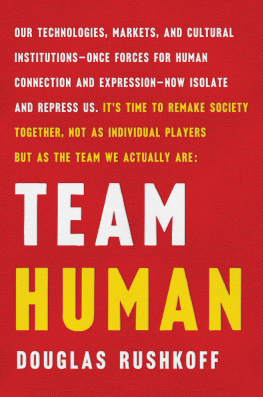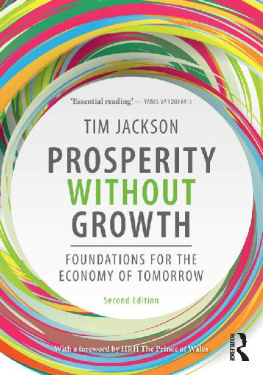Douglas Rushkoff - Throwing Rocks at the Google Bus: How Growth Became the Enemy of Prosperity
Here you can read online Douglas Rushkoff - Throwing Rocks at the Google Bus: How Growth Became the Enemy of Prosperity full text of the book (entire story) in english for free. Download pdf and epub, get meaning, cover and reviews about this ebook. year: 2016, publisher: Penguin Publishing Group, genre: Romance novel. Description of the work, (preface) as well as reviews are available. Best literature library LitArk.com created for fans of good reading and offers a wide selection of genres:
Romance novel
Science fiction
Adventure
Detective
Science
History
Home and family
Prose
Art
Politics
Computer
Non-fiction
Religion
Business
Children
Humor
Choose a favorite category and find really read worthwhile books. Enjoy immersion in the world of imagination, feel the emotions of the characters or learn something new for yourself, make an fascinating discovery.
- Book:Throwing Rocks at the Google Bus: How Growth Became the Enemy of Prosperity
- Author:
- Publisher:Penguin Publishing Group
- Genre:
- Year:2016
- Rating:5 / 5
- Favourites:Add to favourites
- Your mark:
- 100
- 1
- 2
- 3
- 4
- 5
Throwing Rocks at the Google Bus: How Growth Became the Enemy of Prosperity: summary, description and annotation
We offer to read an annotation, description, summary or preface (depends on what the author of the book "Throwing Rocks at the Google Bus: How Growth Became the Enemy of Prosperity" wrote himself). If you haven't found the necessary information about the book — write in the comments, we will try to find it.
Throwing Rocks at the Google Bus: How Growth Became the Enemy of Prosperity — read online for free the complete book (whole text) full work
Below is the text of the book, divided by pages. System saving the place of the last page read, allows you to conveniently read the book "Throwing Rocks at the Google Bus: How Growth Became the Enemy of Prosperity" online for free, without having to search again every time where you left off. Put a bookmark, and you can go to the page where you finished reading at any time.
Font size:
Interval:
Bookmark:

PORTFOLIO / PENGUIN
An imprint of Penguin Random House LLC
375 Hudson Street
New York, New York 10014
penguin.com
Copyright 2016 by Douglas Rushkoff
Penguin supports copyright. Copyright fuels creativity, encourages diverse voices, promotes free speech, and creates a vibrant culture. Thank you for buying an authorized edition of this book and for complying with copyright laws by not reproducing, scanning, or distributing any part of it in any form without permission. You are supporting writers and allowing Penguin to continue to publish books for every reader.
ISBN 978-0-698-15366-0
Version_1
For Barbara and Mamie


O ne December morning in 2013, residents of San Franciscos Mission District laid their bodies in front of a vehicle to prevent its passage. Although acts of public protest are not unusual in California, this one had an unlikely target: the Google buses used to ferry employees from their homes in the city to the companys campus in Mountain View, thirty miles away.
As the photos and live updates from the scene filled my social media feeds, I wasnt sure how to react. Google was, in most ways, the ultimate Internet success storya college dorm-room experiment that had blossomed into one of the worlds most powerful technology giants and created thousands of jobsall while striving to do no evil. The companys stellar growth revived more than a few economic sectors, as well as a few neighborhoods. And for a while, everybody was happy with the way things were going. We all got free search and e-mail. Bloggers got paid to put ads on their Web sites, kids shared in the revenue from YouTube videos, and the Mission District got a bit trendier and safer as hipsters and tech professionals moved in, new coffee and book shops opened, lofts were constructed, and property values went up. Growth is goodat least for those doing the growing.
But the influx of Googlers to San Franciscos most historic neighborhoods also raised rents, forcing out longtime residents and small businesses that were not participating in all this growth. Googles air-conditioned tour buses epitomized the seeming invasionlike space transports taking aliens to and from their mother ship. Adding insult to injury, Google was now using publicly funded bus stops as loading stations for its very private transportation system. Rents close to those bus stops were 20 percent higher than those in comparable areas, which were themselves doubling every few years to accommodate not only Googles employees but those of Facebook, Twitter, and the other Silicon Valley darlings.
And so on the same day Googles stock happened to be reaching a new high on Wall Street, a dozen scrappy, yellow-vested protesters managed to paralyze one of the tech giants now infamous buses. Onto its side they plastered an Instagram-friendly banner that read Gentrification & Eviction Technologies in a perfect, multicolored Google font. Tapping into growing skepticism over the unequally distributed benefits of the tech boom, the image spread like wildfire. At least some small part of me smiled in solidarity with their critique.
A few weeks later, there was nothing to smile about. Protesters in Oakland were now throwing rocks at Googles buses and broke a window, terrifying employees. Sure, I was as concerned about the companys practices as anyone, and frustrated by the way Silicon Valleys rapid growth seemed to be displacing instead of enriching the people of San Francisco and beyond. But I also had friends on those buses, trying to make a living off their hard-won coding skills. They may have made $100,000 a year, but they were stressed-out, perpetually monitored, and painfully aware of their own perishability. Sprintsbursts of round-the-clock coding to meet deadlinescame ever more frequently as new, more ambitious growth targets replaced the last set.
We may all be on the same side here. Google workers are less the beneficiaries of an expanding company than they are its rapidly consumed resources. The average employee leaves within a yearsome to accept better positions at other companies but most of them simply to break free of the constant pressure to perform. Taking the bus gives them more time to work or just relax instead of driving. They are human beings.
For its part, Google is relieving the freeways and the environment of thousands of commuter cars. Unlike many other companies in the Bay Area, which give only lip service to environmentalism or, at best, organize car pools, Google offers a shuttle program that saves more than 29,000 metric tons of CO per year. Since when has doing the right thing become the wrong thing?
There is something troubling about the way Google is impacting the world, but neither its buses nor the people in them are the core problem; theyre just the easy target. Googles employees are not oblivious to the increasing poverty outside the bus windows on their way to work. If anything, such sights only make these workers cling to their jobs all the more desperately, leaving them less likely to question the deeper processes at play. They do want to become millionairesbut not so that they can live a life of luxury. In a country without a strong social safety net, workers are told that they have to become millionaires or else face penury as soon as they retire or, worse, get sick. A typical online retirement calculator insists that a person who earns $50,000 a year will require at least $1.5 million to retire at age sixty-seven, and a single unexpected medical bill can turn any of us into one of Americas 1.7 million annual health-related bankruptcies.
Not even Googles investors, officers, or the infamous 1 percent are to blame for the growing inequalities of the digital economy. Silicon Valley executives and venture capitalists are simply practicing capitalism as they learned it in business school and, for the most part, meeting their legal obligation to the shareholders of their companies. Sure, they are getting wealthier as the rest of us struggle, and yes, theres collateral damage associated with the runaway growth of their companies and stocks. But they are as stuck in this predicament as anyone; many CEOs understand that meeting short-term growth targets is not in the best long-term interests of their companies or their customers, but they are themselves caught up in a winner-takes-all race for dominance against all the other digital behemoths. Its grow or die. So each tech company must become as intrusive, extractive, divisive, time-consuming, wasteful, expensive, job killing, exploitative, and manipulative as the next one. As for their impatient shareholders, well, they are the likes of us: we are the ones holding these very stocks in our own 401(k) and college savings plans, counting on them to go up, and selling them if they dont. None of this worked out as we thought it would, and were all frustrated by the results.
But theres no easy place to draw the battle lines or enemy at whom to hurl the rocks. Thats because the conflict here is not really between San Francisco residents and Google employees or the 99 percent and the 1 percent. Its not even stressed-out employees against the companies they work for or the unemployed against Wall Street so much as everyonehumanity itselfagainst a program that promotes
Font size:
Interval:
Bookmark:
Similar books «Throwing Rocks at the Google Bus: How Growth Became the Enemy of Prosperity»
Look at similar books to Throwing Rocks at the Google Bus: How Growth Became the Enemy of Prosperity. We have selected literature similar in name and meaning in the hope of providing readers with more options to find new, interesting, not yet read works.
Discussion, reviews of the book Throwing Rocks at the Google Bus: How Growth Became the Enemy of Prosperity and just readers' own opinions. Leave your comments, write what you think about the work, its meaning or the main characters. Specify what exactly you liked and what you didn't like, and why you think so.








